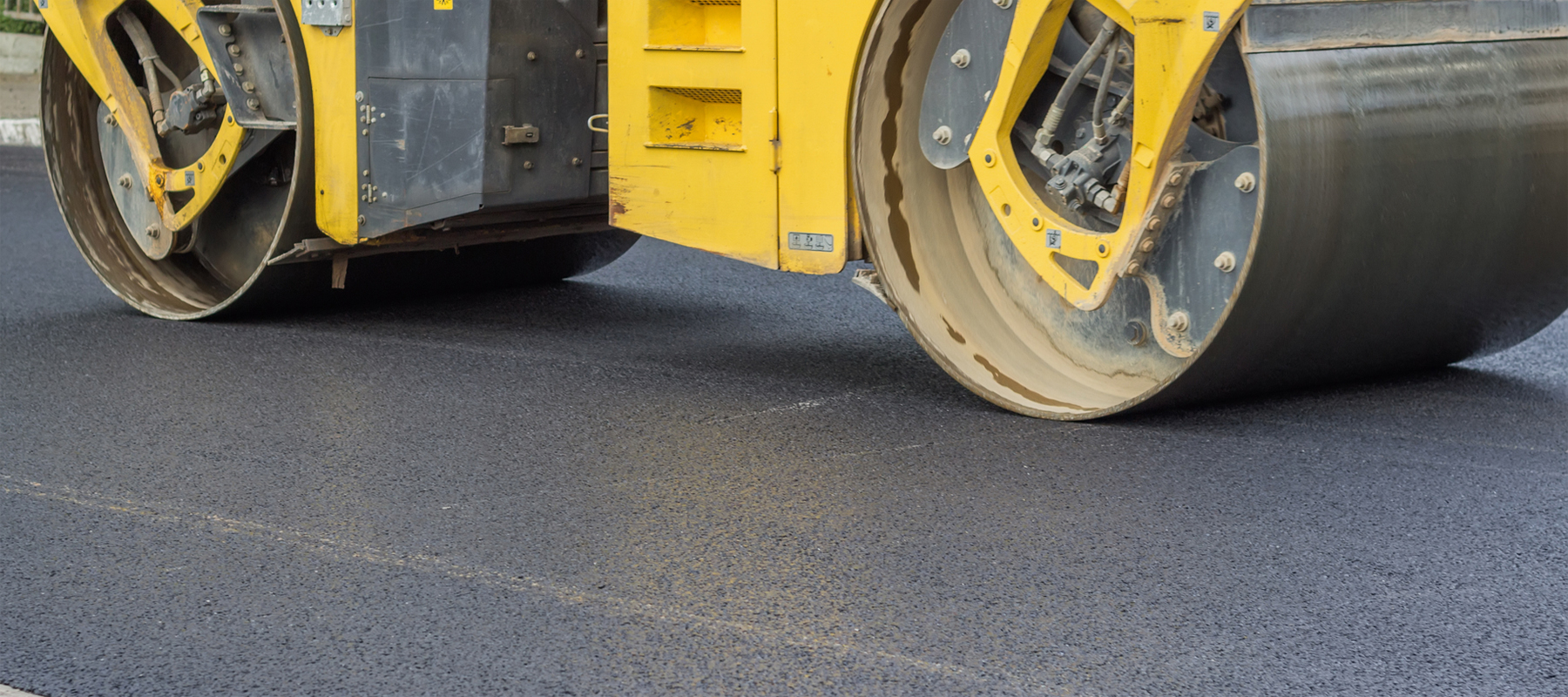A Guide to Asphalt: What are the Different Types of Asphalt Pavement?
Last Updated: June 01, 2023

Fact Checked By: Ryan Maguire
On This Page
Asphalt is the most durable, versatile pavement material out there. It can be designed to handle even the heaviest of loads, with surface mixes customized for noise absorption, rain water treatment, and splash/spray reduction. This post describes the different asphalt mixes and paving types.
What Are the Different Asphalt Mixes? #
There are two primary classifications of asphalt: hot mix asphalt (HMA) and warm mix asphalt (WMA), as well as mixes designed for various functions and purposes.
Hot Mix Asphalt #
HMA mixtures are heated to temperatures between 300 and 350 degrees fahrenheit. They repel water and have high flexibility and weather resistance, making them great for highways, interstates, and most other types of roadway. Hot mix asphalt cools quickly, so it is generally used when air temperatures are above 40 degrees. This is the most common type of asphalt in the US. Subcategories include:
- Dense-graded mixes: Meant for general use and nearly impermeable when properly constructed. Referred to by their nominal maximum aggregate size: fine-graded and coarse-graded. Fine-graded mixes have a higher amount of fine, sand-sized particles than their coarse-graded counterparts.
- Open-graded mixes: Designed for water permeability, open-graded mixes use crushed stone and a small amount of manufactured sand. Common mixes include open-graded friction course (OGFC) and asphalt treated permeable bases (ATPB). OGFC usually contains around 15 percent air voids and has no specified maximum air voids. ATPB is only used for drainage, so it has less stringent specifications.
- Stone matrix asphalt (SMA): Also referred to as stone mastic asphalt, SMA is a gap-graded hot mix asphalt developed in Europe for maximum durability and rut-resistance. It uses stone-on-stone contact to achieve this goal. SMA tends to be more expensive than other dense-graded HMA, as it requires modified asphalt binders and fibers, more durable aggregates, and a higher asphalt content.
Warm Mix Asphalt #
WMA is manufactured between 200 and 250 degree fahrenheit. Warm mix asphalt requires fewer fossil fuels and resources to manufacture than HMA. It also has additional additives and binding materials, such as emulsions, wax, and zeolites, for easier pouring and spreading at low temperatures. Overall, WMA costs less to produce than hot mix asphalt.
Since WMA is manufactured and shipped at lower temperatures than HMA, it doesn't cool as quickly. This allows it to be shipped across greater distances and used outside of the standard construction and paving months. In addition, warm mix asphalt is better for both the environment and workers, as the lower temperatures mean less dust, fumes, and smoke.
Warm mix asphalt can be used to pave most roadway types, cart paths, driveways, and walking paths.
What Are the Different Pavement Types? #
Just as there are different types of asphalt mixes, there are different types of pavement. Each type has its own strengths in certain situations.
- I-2 stabilized base: Also called stab base, these are sub-base pavement layers that provide a durable, strong foundation. They can be used with either flexible or rigid pavements, but are most commonly used with flexible ones. The mixture must contain 2 to 5 percent asphalt binder and 95 to 98 percent aggregate (usually crushed stone) to ensure true stability.
- I-4 MABC: Made from a blend of stone and other aggregate materials, MABC stands for medium aggregate bituminous concrete. It is incredibly dense and sticky, making it ideal as a middle layer between the sub-base and top layer of fine aggregate bituminous concrete (FABC). It is typically used for airport runways and road paving/repair.
- I-5 FABC: Generally applied as the top paving layer, I-5 FABC must be made with a specific blend of aggregates, filler, and binder to meet DOT requirements. As the name implies, this is usually achieved with fillers such as bitumen, sand, and stone dust. I-5 FABC is used for various projects, including airport runways, parking lots, and roads.
- Perpetual pavement: A combination of asphalt and multi-layer paving processes, perpetual pavement has a strong bottom layer to support the strain of traffic, an intermediate layer to complete the structural aspect, and a long-lasting, rut-resistant top layer. This pavement type is easy to maintain and, with regular servicing, can last for years.
- Porous asphalt: Primarily used in parking lots, porous asphalt presents a simple, effective solution for dealing with stormwater. Its permeable surface allows water to drain through. Drainage then goes into a stone recharge bed and drains into the soil. The stone bed must be the proper depth and size, otherwise the water level can rise to the asphalt and cause problems. Most stone beds have a depth between 18" and 36".
- Quiet pavement: Significantly reduces road noise at the source, without the need of noise barrier walls. Resurfacing a road with SMA or an OGFC mix reduces highway noise by an average of 3 to 5 dB(A). This reduction is essentially the same as doubling the distance between the source of the noise and the person that hears it.
Making the Right Asphalt Choice #
There are several asphalt and pavement types available, each one providing its own strengths and weaknesses depending on the project. Understanding the differences and purposes of each ensures you get the best mix for your needs.
How Much Does Asphalt Pavement Cost? #
Asphalt pavement prices vary widely, from around $1,500 to around $10,000. Cost variances depend on the size of your project, the materials required, your location, and whether you're paving, replacing, or resurfacing.
- The average cost of a homeowner-level asphalt project is around $4,500
- An asphalt driveway costs between $3 and $4 per square foot, on average
- The base coat costs between $1 and $2.50 per square foot
- Top coats and sealants also cost another $1 to $2.50 per square foot
- You'll need 8" to 10" of gravel for your foundation, which adds another $1 to $2.50 per square foot
In addition, you may need to excavate and clear the area. Costs here depend on average labor rates in your area and the size of the project.
